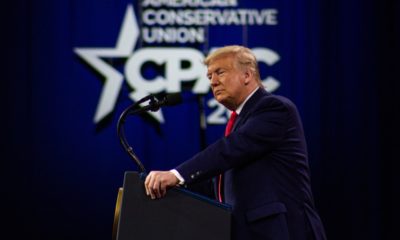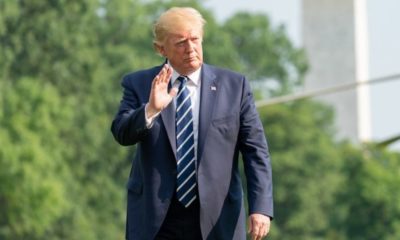Breaking News
Congress Split on More Fiscal Relief

Congress is debating whether to send out another wave of financial relief but, as usual, it’s becoming a partisan issue.
The Democrat-controlled House passed a $3 trillion spending bill last week, which sparked a major debate among lawmakers. Republicans are eager to reopen the economy and they’re taking a more prudent approach towards spending more taxpayer money. On the other hand, Democrats seem to be more inclined towards continuing the lockdown and using fiscal stimulus to carry the country in the meantime. The bill has almost no chance of passing the GOP-controlled Senate in its current form. However, the two sides might come to a compromise that could result in another wave of relief funding.
Powell's Suggestion to Congress
Last week, Federal Reserve Chairman Jerome Powell seemed to suggest that Congress should consider passing additional relief measures. This can help prevent long-term economic damage from the pandemic lockdowns. “While the economic response has been both timely and appropriately large, it may not be the final chapter, given that the path ahead is both highly uncertain and subject to significant downside risks,” Powell said in a statement to the Peterson Institute for International Economics in Washington last Wednesday.
“Additional fiscal support could be costly, but worth it if it helps avoid long-term economic damages and leaves us with a stronger recovery,” said Powell. However, he put the onus on Congress to chart the path forward, “This trade-off is one for our elected representatives, who wield powers of taxation and spending.”
Many Democrats are citing Powell’s concerns as their reason for pushing forward the new stimulus measures. However, the bill drafted by House Democrats is arguably extravagant. The bill’s $3 trillion dollar price tag is almost double what’s already been spent. Additionally, some of its conditions could cause more harm than good.
Possible Drawbacks
The nation’s governors are counting on our leaders in Washington to put partisanship aside and deliver urgent fiscal relief for the states. Read my joint statement with @NYGovCuomo: https://t.co/hmNVl6aFq3 pic.twitter.com/0c2PczBj4m
— Governor Larry Hogan (@GovLarryHogan) May 14, 2020
The Democrat-backed bill would expand beefed-up unemployment benefits through January. Currently, unemployment recipients are receiving an extra $600 per week on top of their usual benefits. However, the additional funds don't correlate to actual earnings. Therefore, many recipients are collecting benefit checks that are significantly larger than their typical paycheck. This is becoming a major hindrance for business owners attempting to reopen. The struggle comes as many workers continue to refuse coming back to work until they exhaust their benefits. With most of the country close to reopening, extending the program another six months seems to counterproductive to the country’s economic recovery.
The bill would also expand the stimulus check program to include money for illegal immigrants who don’t have social security numbers. Sending taxpayer dollars to people that are in the country illegally seems questionable at best. However, it also raises concerns about potential fraud.
The small pittance that the Democrat-backed bill pays to individuals is nothing in comparison to the billions of dollars that the bill allocates for mismanaged state and local governments. Over $1 trillion dollars of the bill is set aside for state and local governments, who have complained that they don’t have enough cash to combat the crisis. However, the vast majority of the states that are decrying funding shortfalls are free-spending blue states with Democratic governments. Other more conservative states, like Texas and Florida, have maintained balanced budgets despite the crisis.
Concerns
Unsurprisingly, Republican lawmakers have voiced several concerns regarding the bill. President Trump and the rest of the GOP have largely prioritized reopening the economy ahead of passing more stimulus. Instead of expanding unemployment benefits, Republicans including Rep. Kevin Brady (R-TX) favor policies that would provide incentives for people that return to work. Some suggested policies include cutting or suspending payroll tax, which would reduce the cost of hiring workers and allow wage-earners to take home a larger portion of their paychecks.
Another major sticking point for Republicans is legislation that would provide a liability shield to companies during the pandemic. Senate Majority Leader Mitch McConnell (R-KY) is concerned that the businesses are afraid to reopen because of the threat of lawsuits. Therefore, liability protection could accelerate the reopening of the economy. Republicans have also been discussing additional incentives that include bonuses for workers that get rehired.
Bipartisan divides are nothing new in Washingon. However, it’s a little disconcerting to see so much political maneuvering during a national crisis. Democrats seem to be perfectly content keeping the country in an indefinite state of paralysis. However, the party’s position seems to be out of touch with the hard-working business owners and blue-collar workers that make this country great. Ultimately, another round of stimulus may be necessary. However, the crisis shouldn’t be used as an excuse for irresponsible spending on the taxpayer’s dime.
Up Next:












